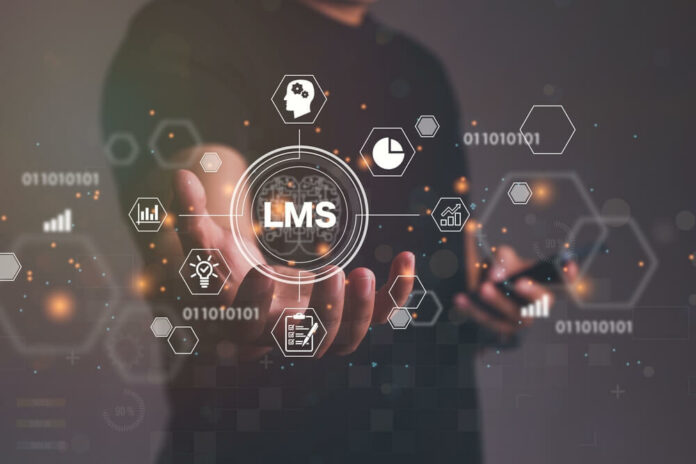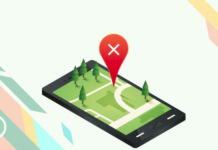
Imagine a realm where knowledge transcends the boundaries of the classroom; Picture an environment where you can learn and acquire new skills at your own pace from any location. Modern technology, such as the Learning Management System (LMS), has made this reality possible.
Continuous learning and development have become essential for success in today’s fast-paced world. People who steadfastly uphold their established routines or resist changing with the times frequently risk falling behind their more adaptable peers. This article examines how digital solutions, like the LMS mobile app, enable professionals to future-proof their education. This ensures professionals’ productivity in a constantly evolving work environment.
The Need To Stay Agile With Your Learning And Development Approach
In today’s rapidly evolving industries, staying updated with current growth trends requires quickly acquiring knowledge. However, more than traditional methods, such as attending conferences and seminars, is necessary due to their limited timeframes. Multiple priorities compete with each other. In today’s professional landscape, it is crucial for individuals seeking career advancement to prioritize establishing innovative approaches that ensure continuous education for workers. Additionally, professionals should consistently consider the creation of adaptable development environments.
What do forward-thinking businesses require regarding the scenarios above that induce portrayal? There are two main aspects to consider: Insightful leaders are capable managers who utilize tools to integrate mobile application-based e-learning platforms. LMS ensures efficient remote training for a large workforce, promptly achieving course objectives. It maintains continuous follow-up to ensure everyone remains adequately trained.
Imagine a scenario where T-Rex attempts to walk gracefully on a narrow line despite its massive size. This is what is happening with the industry at large. As enterprises advance rapidly, professionals must be nimble, adaptable, and adept at acquiring new knowledge to maintain a competitive edge.
Bespoke vs. Off-The-Shelf Training Courses
Studies have demonstrated that people remember information more effectively when their learning experience is tailored to their needs. Most businesses have a bespoke training program tailored to their objectives. As a result, they require customized approaches rather than using pre-made content. Therefore, it is important to shift away from generic training models and focus on tailored programs that address specific groups and their critical success factors. This involves targeting specific skill gaps and addressing theoretical uncertainties.
Tailoring the curriculum to meet specific needs leads to increased engagement, improved knowledge absorption, and higher course completion rates. Off-the-shelf coursework is suitable for providing a basic introduction but can become monotonous and uninteresting, particularly for experienced professionals. It can feel like rereading the Harry Potter books multiple times, eventually losing interest.
How An LMS Can Bring It All Together
Mobile learning management systems provide numerous advantages. In addition to being flexible and accessible, such as through constant surveillance on social media, online training is more cost effective than traditional training methods. The venue rentals, travel, and large printing expenses will be reduced. Additionally, the events will be scheduled on desired dates to ensure maximum convenience.
Flexibility allows individuals to study independently and balance other minimal-stress responsibilities. Any location can conveniently function as a virtual or physical classroom, making it possible to achieve multiple goals simultaneously. Learning Management Systems (LMS) provide instruction through short videos, engaging games, and vivid presentations.
Facilitating discussions among colleagues and remote instructors greatly enhances collaboration within the team. This alignment of individual objectives is particularly important for fostering group dynamics and improving goal orientation. Ultimately, this leads to surpassing company standards and achieving higher levels of success.
For example – airlines used to rely on traditional methods of ticket booking, which involved physical papers. However, with the advancement of technology, modern carriers have transitioned to electronic ticketing. This has allowed for convenient features such as in-flight menu selection and seat reservations. As a result, the airline industry has become more competitive by embracing better technology.
Conclusion
The digital age offers a great chance for lifelong learning, as smartphones have become ubiquitous, and individuals now anticipate constant access to information. Investing in mobile LMS applications can help future-proof the education of your workforce, whether you are a small business owner or part of a large organization.
E-learning has become more enjoyable and engaging with customized courses delivered through Learning Management Systems on smartphones. This allows professionals to continuously acquire new skills that can be immediately applied in their work. These valuable assets can be carried wherever they go. Even slight adjustments can lead to positive changes, impacting worker’s lifestyle and their work-related duties. This, in turn, can contribute to career advancement, financial settlements, and increased influence and power.
Individuals need to stay updated with the continuous development of technology. Those who are unaware or skeptical are at risk of being left behind. As technology advances, it is readily available digitally, and everyone must further their knowledge and stay up-to-date.










